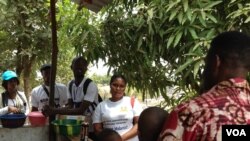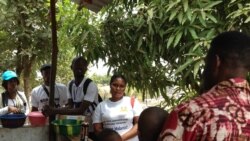Although there has been encouraging news about the Ebola epidemic in West Africa in recent weeks, new infections with the virus continue, and the United States remains committed to doing what it takes to stop them.
Last September, President Barack Obama announced a major increase in the U.S. effort to help combat the outbreak, setting an example for many other countries as well. Together, we greatly increased the contributions of our doctors and diplomats, soldiers and supply experts, health workers, humanitarian specialists and others. All are working side-by-side to stop the epidemic.
Ebola treatment units and basic response infrastructure are now in place. There are more than enough treatment beds for the current number of cases, and the soldiers and engineers who put them in place can now return home.
That does not mean the epidemic or the commitment of the United State to end it is over. Experts say the last mile of ending an infectious disease epidemic is often the hardest. Finding every last infected person and their close contacts, no matter how remote, requires painstaking work in remote locations led by experienced epidemiologists.The U.S. Centers for Disease Control is providing many of the needed personnel, and other countries are being encouraged to increase their contributions at this stage of epidemic as well.
Now, a year after the first U.S. personnel were deployed in the region, reported Ebola cases have dropped sharply in Guinea and Sierra Leone, and Liberia, once a hotspot, has no known active cases, according to health experts.
But while U.S. troops who provided transport and infrastructure are leaving, the United States is not leaving West Africa behind. In keeping with President Obama’s charge that we tackle Ebola as a U.S. national security priority, we will continue to lead in the international Ebola response we helped to build.More than 10,000 U.S.-supported civilian responders are on the ground to fight the disease.
The next phase demands sustained, targeted involvement as we work to achieve zero cases in West Africa, while building the capacity within the region to prevent, detect and respond to future outbreaks before they become epidemics.
While we have succeeded in controlling the exponential growth of the disease, getting to zero cases will require a sustained and targeted international response. The fight is far from over and we remain committed to achieving an Ebola-free West Africa.

















